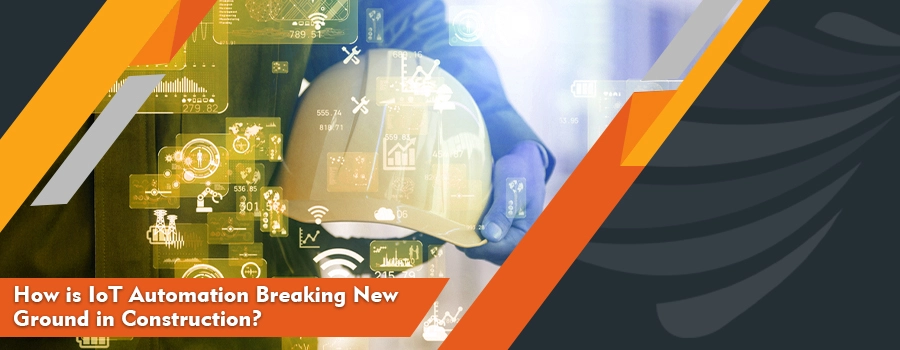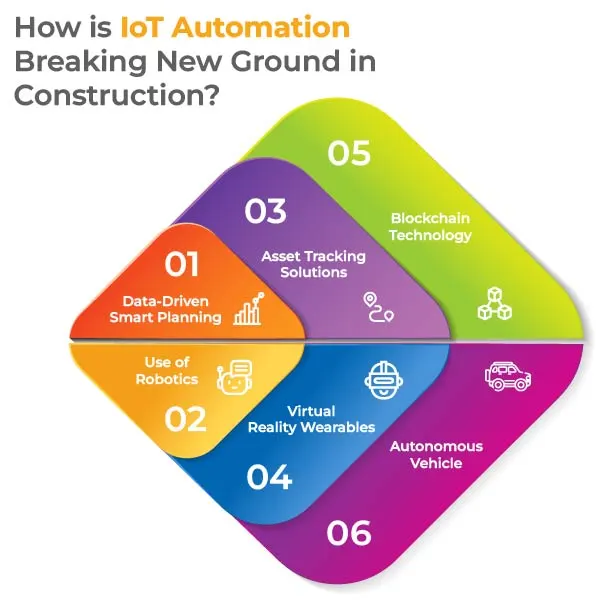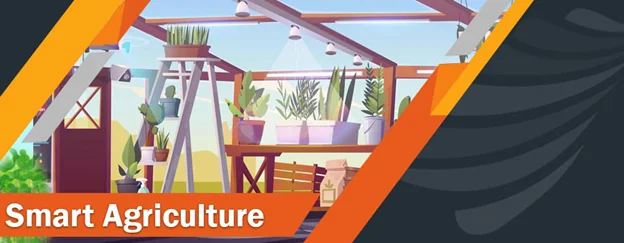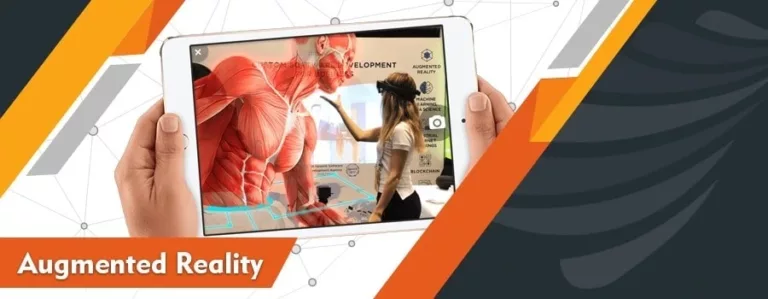Nowadays, almost every industrial sector utilizes different benefits of IoT automation in terms of increasing overall productivity. Likewise, IoT in construction has increased the efficiency of the latter’s operations. Multiple IoT-enabled solutions that work on the principle of automation have replaced traditional mechanisms of the construction industry.
It is evident that IoT automation and technological advancement can break new ground in the construction sector making multiple operations error-free and quick.
Essentially, Automated construction refers to the idea that different equipment works and performs a plethora of construction tasks autonomously via the power of the internet. This will eventually ensure accuracy by reducing human labor input. Plus, according to a report, the market of industrial robots is expected to grow by 26% by 2025. This shows that Automation and IoT have a bright future, especially in the construction industry.
Nevertheless, below are some grounds that infer positive transformations of construction via IoT automation:
Data-Driven Smart Planning
Construction in the past was a long and laborious process that may have included thousands of spreadsheets, massive paperwork, constantly changing blueprints, and less reliable communication among workers and stakeholders. However, with IoT in construction, these things can easily be replaced by digital transformation Utilizing different IoT solutions help you gather a vast amount of data regarding different processes and operations of construction. It is evident that humans are bound to make decisions that may turn out to be bad ones. Plus, construction involves complex operations and ample multiple decisions making simultaneously; this could lead to unintentional mistakes, which may halter the progress. However, with the incorporation of IoT solutions, stakeholders can make a well-informed decision and complete the project within the given or expected time frame. Using data-driven analytics can ensure automation in construction, paving the way for progressive results while saving time and cost.
Use of Robotics
IoT technology can automate different aspects of the industry with the application of robotics. IoT and Artificial intelligence can digitally transform multiple processes of construction. In fact, IoT sensors help in the efficient working of robotic devices to carry out numerous tasks upon given relevant data or input. Given the importance of applications, robotics or robots can be utilized for performing repetitive tasks like mixing concrete, polishing floors, cement laying, etc.
They can perform such operations without delay, fatigue, or constant guidance. Moreover, such utilization of robotics can help in the effective use of raw materials and prevent human error, saving both money and time. In addition, these automated robots can be used in heavy-duty and demolition tasks easily. For instance, they can be utilized for multiple purposes on huge buildings, carrying raw materials to extended heights, bringing down firm walls, and destroying pure concrete foundations or slabs. This will ensure cost-efficiency and provide a safer working environment for workers and nearby residents.
Asset Tracking Solutions
Another way IoT automation can enhance the operations of construction sites is through asset tracking solutions and devices. Generally, it is evident that multiple tools and equipment are present, from small sizes to large, at construction sites. It could be a simple hand-handled tool like a wrench or a big machine like a demolition truck. This could raise some serious challenges for construction managers or even stakeholders to keep track of resources and assets.
Nevertheless, IoT-enabled asset tracking solutions like TrackPro are available in the market that easily fulfills this task of keeping track. Stakeholders with such smart solutions or IoT innovations can keep a constant eye on their resources or assets via mobile apps. Smart sensors attached to resources or different tools accurately pinpoint their location to the construction manager. The data of their whereabouts is automatedly stored on the cloud that can be accessed anytime, anywhere. As a result, stakeholders can efficiently allocate the resources, equipment, and tools from one site to another without any hassle. Plus, this will help prevent theft and misplacement while averting any future losses.
Virtual Reality Wearables
Stakeholders can utilize virtual reality wearables for automation in construction operations. These devices use IoT technology to help the builders and stakeholders to create 3D versions of the project to better market their vision. Builders can use VR wearables to simulate reality to help the customers or buyers better understand and feel about the project. For instance, builders or sale executive can use IoT-powered devices to convene a demo for the clients without actually visiting the construction sites via the power of the internet.
Moreover, such wearables can be used for modeling and planning purposes for the builders to prevent any mistakes in the actual construction. Also, by using VR wearables, clients can make last-minute changes to the project and inform the builders without causing any hassle and complexions. It helps builders deliver a project that fully satisfies the client’s demands and desires. This shows that IoT automation can empower both builders and clients through such devices by adding different internet-oriented digital features to smart construction processes.
Blockchain Technology
Construction is a significant industry involving crucial monetary transactions and important contracts among stakeholders. Because of these reasons, it involves enormous money exchange, complex arrangements, and agreements between different stakeholders on perishable papers. Indeed, miscommitment, fraud, or misplacement of documents may lead to severe losses and lengthy judicial trials between stakeholders. It may cause colossal money losses while adversely affecting the reputation in the market.
Luckily, because of Bitcoin, the world can now utilize blockchain technology which can easily automate and secure the data of crucial money-transaction and contract on the cloud. It uses the method of decentralization and intelligent data security while replacing paper contracts with smart digital agreements that can prevent any fraud. Moreover, the construction industry with blockchain can bring transparency to different operations and financial transactions. Plus, it will encrypt your transaction data while reducing expenses by removing the role of intermediaries like lawyers during agreements and contracts.
Autonomous Vehicle
IoT and automation can ensure the smart construction of the project through autonomous vehicles. Traditional construction practices and operations involve a lot of manual work, which could increase the expense and employment of many human employees. Plus, there is constant pressure to manage them on a regular basis, assigning them tasks, caring for their well-being, and ensuring their safety. However, smart AI-enabled vehicles can bring automation to various manual construction tasks by resolving all aforementioned issues and concerns.
Autonomous machinery and unmanned aerial vehicles (UAV) are gaining momentum in the market. Construction managers can efficiently and remotely utilize them for heavy-duty lifting and transporting raw materials to the construction site via the internet. For instance, UAV drones, automated excavators, and dump trucks are being used at various construction sites to perform long, laborious tasks while preventing time consumption. Plus, adding smart trackers to such large movable equipment can bring convenience to managers. It will help the latter in the timely maintenance of assets and their smart allocations while reducing the overall project time & costs and avoiding any human-prone error in the process.
Conclusion
To sum up, IoT automation can ensure the smart construction of projects making things easy and efficient for the stakeholders and clients. Upgrading to smart construction can help stakeholders to cut considerable expenses making it easier and more feasible for clients to build their dream homes and offices in less time and with greater efficiency. Indeed, automated construction can bring transparency, accuracy, and competence to multiple construction processes.





